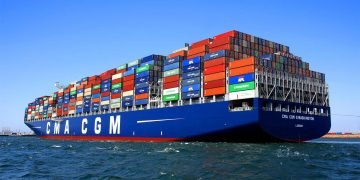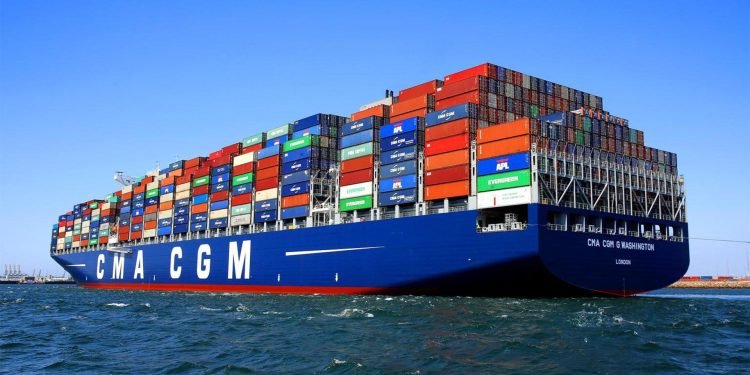By Maria Kalamatas | August 5, 2025
New York, August 5 — It wasn’t announced on a stage or teased through glossy slides. The news came out of a closed-door session with port officials in New Jersey: French shipping group CMA CGM will invest $20 billion across the U.S. over the next four years.
“Not just ships and terminals,” said one person present at the meeting. “They’re talking rail, warehouses, and even AI.”
The company’s leadership hasn’t held a press conference yet. But according to several people familiar with the discussions, the plan includes new inland hubs, expanded rail links from the Gulf and East Coast, and partnerships with American tech firms to digitize operations.
From shipping giant to logistics integrator
This shift didn’t start overnight. For several years now, CMA CGM has been expanding beyond ocean freight. The acquisition of CEVA Logistics, the development of port terminals, and regional trucking contracts were early signs. But this latest move is different — it’s larger, more targeted, and squarely focused on the U.S. market.
“They’re not just docking ships anymore,” said a port consultant based in Savannah. “They want to control the container from Asia to your warehouse door.”
What will the money build?
While details are still emerging, some elements are already clear. A portion of the funds will go toward upgrading port infrastructure on the East Coast. Another share is expected to support the construction of inland container yards, particularly in underserved areas between Chicago and Atlanta.
CMA CGM is also in talks with regional rail providers to improve container transfer speeds and capacity. And on the tech side, insiders say a joint venture with an American AI startup is underway — focused on optimizing freight flow, not replacing jobs.
“This isn’t just capital expenditure,” said a maritime economist in Norfolk. “It’s strategy. And it’s personal.”
Market reaction? Quiet — for now
Port authorities in Los Angeles and Houston have not publicly responded. Some competitors are waiting to see if the group will enter the last-mile delivery segment, which would bring them into direct competition with FedEx or UPS.
But shippers — especially mid-sized importers — are watching closely. Many have struggled with fragmented services and delivery uncertainty over the past three years. A single provider offering port-to-door logistics could be appealing.
“Reliability wins,” said a New Jersey-based furniture importer. “If they can actually deliver what they promise, I’ll switch tomorrow.”
A French stake in American logistics
This move is more than business. It’s a long-term bet on U.S. infrastructure, made by a company headquartered thousands of miles away.
And in an industry where capital talks louder than words, $20 billion says plenty.























